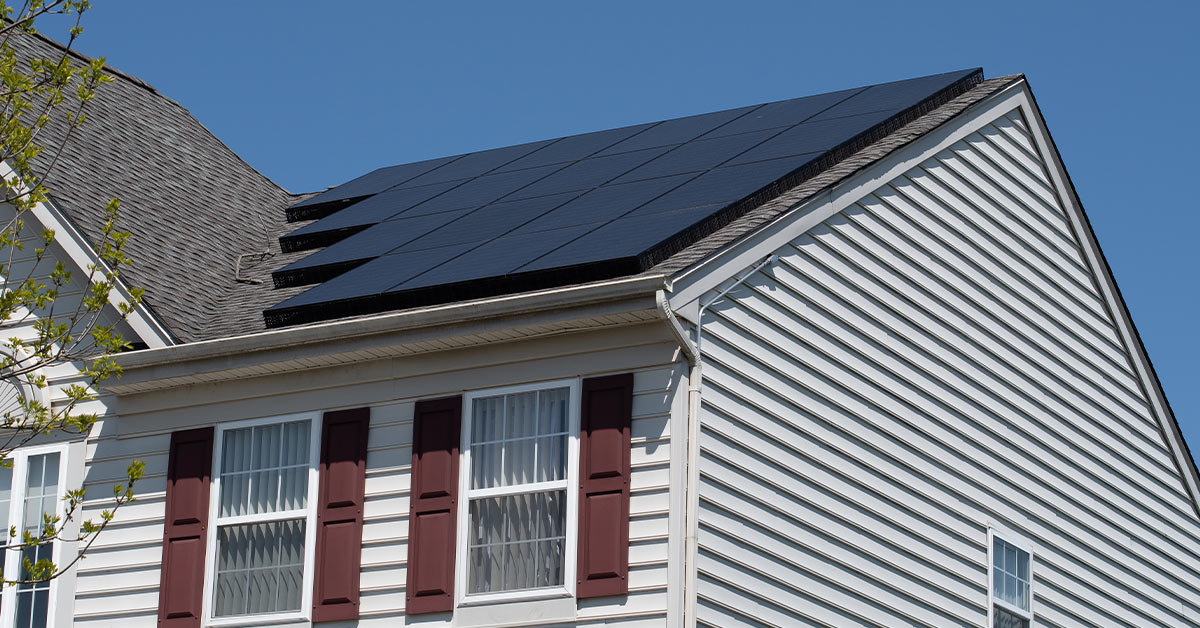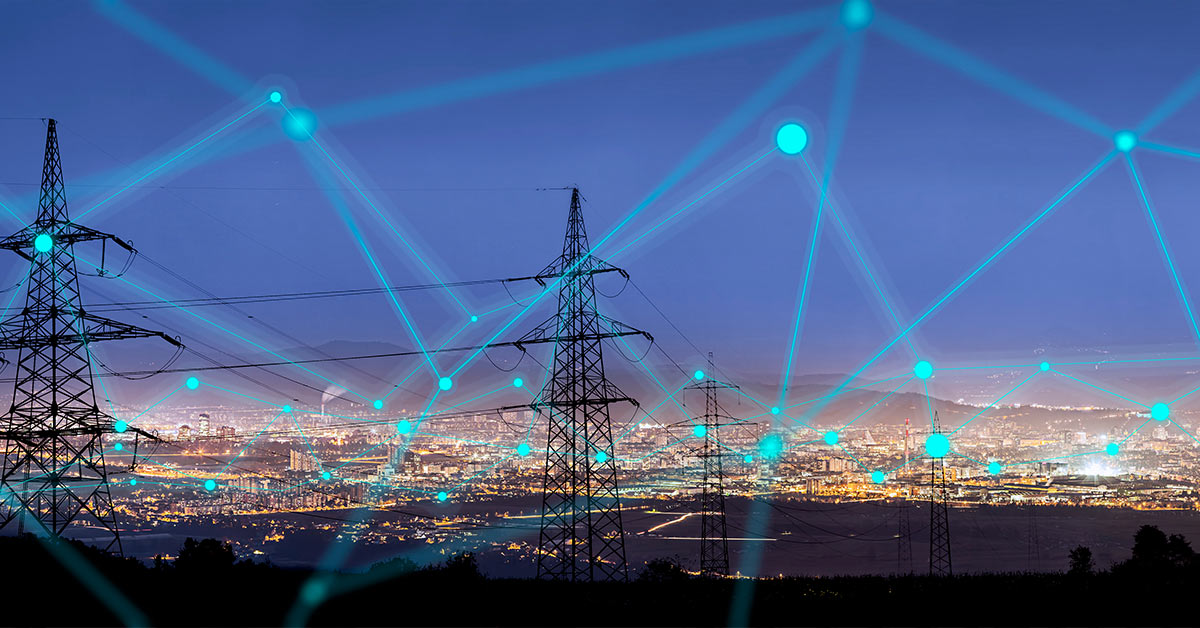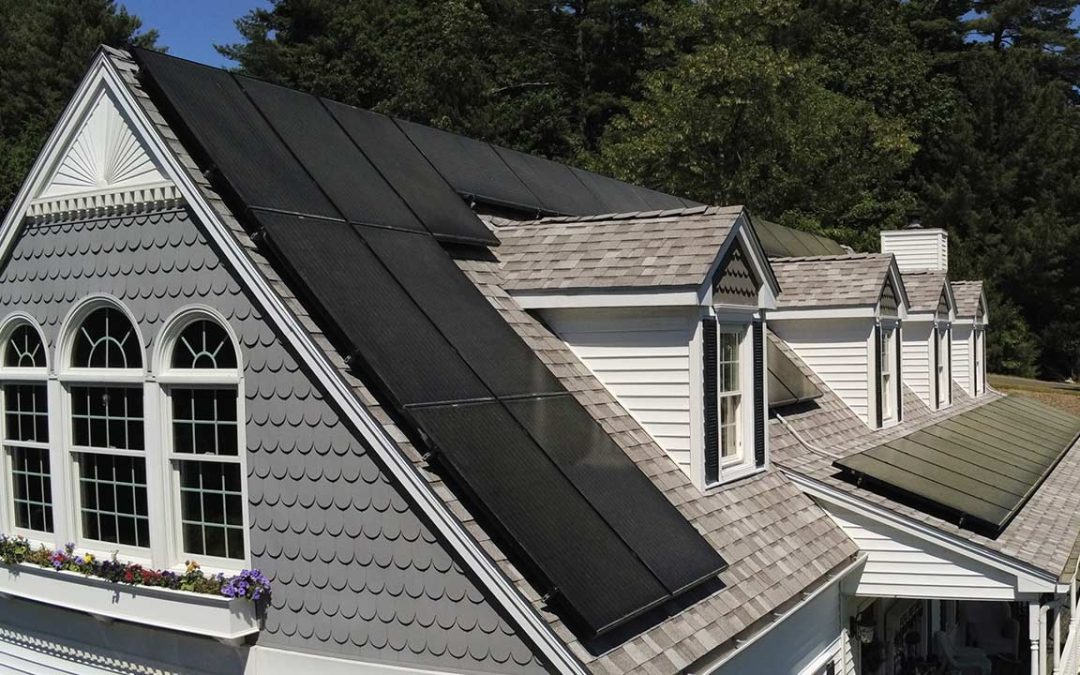When it comes to generating electricity for your home, many people tout the efficiency of solar energy. But how do solar panels save money, energy, and the planet? Their impact leads to a wide range of benefits that homeowners in the Washington metropolitan area can soon enjoy. Our team at Trinity Wiring Solutions has discovered six advantages of switching to solar energy.
Save Money on Energy Bills
Annual energy usage can cost homeowners thousands of dollars, including transportation and residential energy. Solar power works immediately after installation to reduce or eliminate these costs by utilizing the power of the sun. In the DMV, the sunshine is enough to power a household of five at net-zero energy consumption. This is due to warm spring days that often generate more energy than is consumed, which can be saved for the days when you need to run air conditioning or pull from the community solar grid.
Even cloudy locations receive more than two hours of sunlight per day, compared to the 5.5 hours in brighter areas. Solar panels work to generate energy even on cloudy days, producing approximately 10 to 20 percent of the power generated on sunny days.
Earn Tax Credits and Rebates
The federal government is encouraging more residents to choose solar energy. Homeowners who install solar panels will receive up to 30% of total system costs back from installation and equipment as a federal income tax credit, meaning you can save $7,500 on a system worth $25,000. When combined with state and local rebates and Solar Renewable Energy Credits (SRECs), you can often cut your total costs by half. Your home generates SRECs throughout the year, which can be sold to utility companies, creating an excellent return on your solar investment. The investment has a payback period of approximately 3.5 years, while solar panels have a 10-year warranty and 25-year lifespan, allowing you to generate free electricity and extra credits for over 20 years.
Residents of Washington, D.C. can also enjoy the Renewable Portfolio Standard Expansion Act (B21-0560), which raises the renewable portfolio and solar requirements to 50 percent and 5 percent, respectively, by 2032. It also assists low-income homeowners with installing solar systems on their homes through a program of the Department of Energy and the Environment.

Increase Your Home’s Value
Solar panels significantly increase a home’s value because home buyers will enjoy the benefits of free solar energy without having to pay for the investment and installation. Most homeowners are experiencing a $5900 resale value increase per installed kilowatt of solar energy. Therefore, a 3.1-kilowatt system may improve your home’s value by almost $18,000.
Solar panels also protect your home from the elements, including snow, hail, rain, and debris, so you don’t have to worry about fixing roof damage. Furthermore, your home increases its energy efficiency because the solar panels absorb the sun’s heat, thus helping keep your home’s temperature much cooler.
Strengthen the Energy Grid
An energy grid is less likely to experience a blackout if there are power plants distributed over the region. A grid with more solar energy penetration may have thousands of energy production centers, which helps improve grid security in the face of overload or natural disasters.
Speaking of overload, most energy demand is at its highest between 11:00 – 16:00 and in the early evening, which is when the cost of electricity usage is also at its peak. Fortunately, solar energy reaches its maximum production capacity during these bright hours of the day. Electricity produced within these hours has a higher value than night-generated energy. The additional electricity input of solar energy helps to drive down the prices closer to a level of nighttime power.

Reduce Your Water Usage
Your current energy source likely uses fossil fuels, hydropower, or nuclear energy to power itself, all of which require a significant amount of water to produce electricity. Oftentimes, dams are built to control water flow and energy production, which negatively impact local ecosystems. Fossil fuels also use water for fracking and transporting oil through pipelines, which occasionally burst and pollute our waterways. Coal and nuclear power utilize large amounts of water for cooling, adding to the issue of water scarcity in the face of heat waves or droughts.
However, solar panels generate energy without using water. The US Office of Energy Efficiency & Renewable Energy believes that solar energy systems could lower water consumption in at least 36 states, working to conserve water resources. Solar power also continues operating during droughts or heat waves, meaning people can still stay cool even in intense heat.
Lower Greenhouse Gas Emissions
As we’ve stated, solar power derives clean energy from the sun with minimal environmental impact. Traditional energy sources derived from fossil fuels are harmful due to greenhouse gas emissions, which are created when coal or natural gas is burned to produce electricity. These emissions weaken the ozone layer, contribute to climate change, and cause respiratory disease in local communities. Fossil fuels are also a finite resource, and their instability leads to fluctuating prices, as seen with the gasoline that powers the majority of cars. When homeowners install solar panels on their property, they help combat greenhouse gas emissions and create independent energy grids that end our dependence on fossil fuels.
Homeowners are opting to install solar panels for a variety of reasons. Whether they want to help the planet or save money on energy expenses in the long run, solar power is the future of energy solutions. Trinity Wiring Solutions is here to help you transition from traditional energy sources to solar power. Contact us today to begin!
